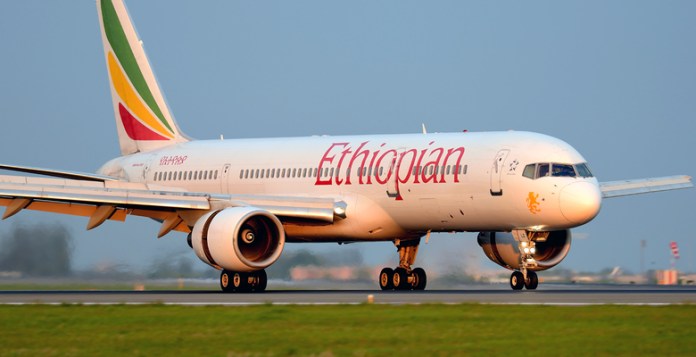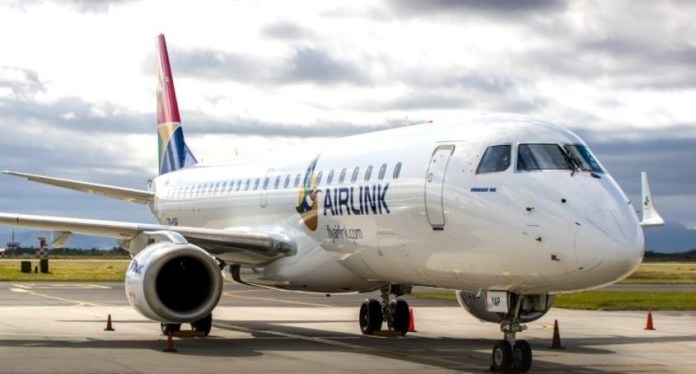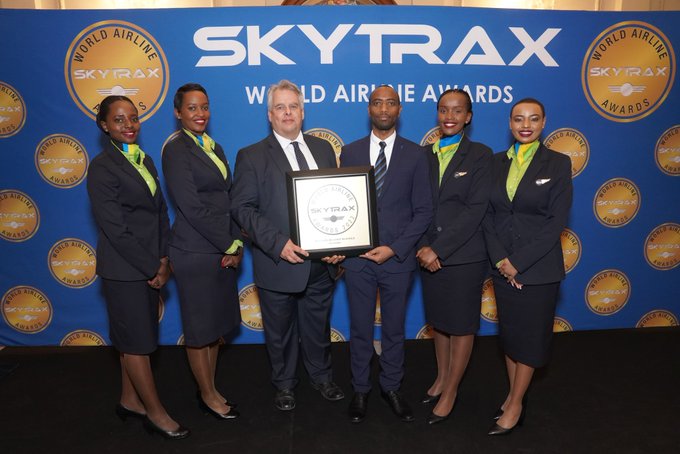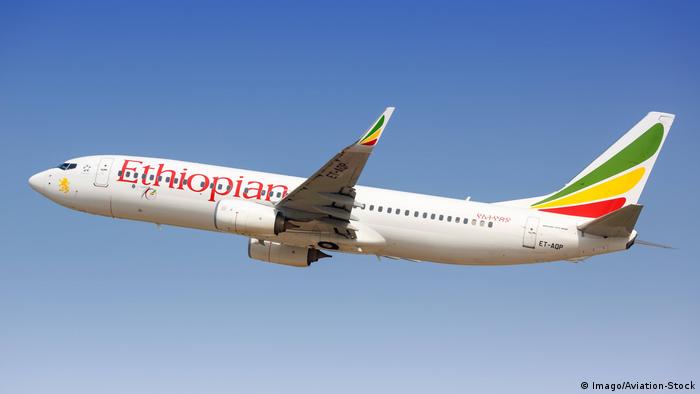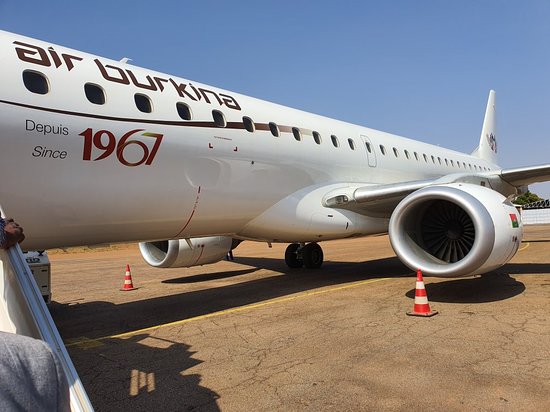Emirates Becomes World’s Most Profitable Airline in the 2024-25 Reporting Period
Emirates Group the world’s most profitable aviation group for the year 2024-25
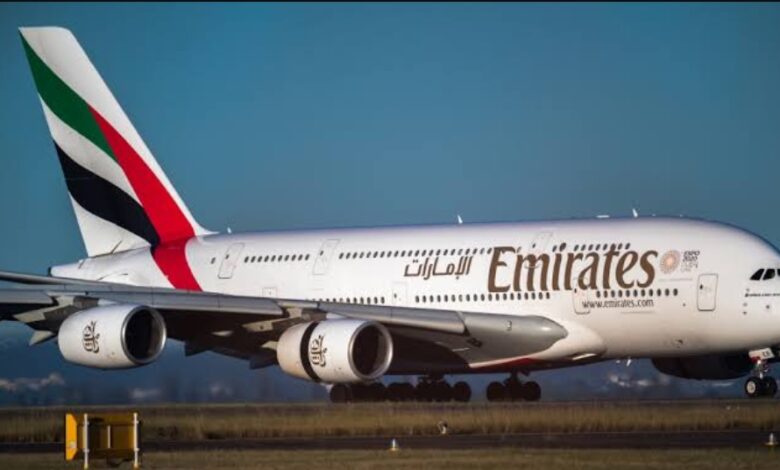
The Emirates Group today released its 2024-25 Annual Report achieving new record profit, EBITDA, revenue, and cash balance levels. This outstanding performance places the Emirates Group as the most profitable aviation group globally in the 2024-25 reporting period, with Emirates reporting the best result in its history to become the world’s most profitable airline.
Both Emirates and dnata contributed record revenues in 2024-25, as the Group expanded its operations around the world to meet voracious customer demand for its high-quality products and services.
For the financial year ended 31 March 2025, the Emirates Group reported:
- record profit before tax of AED 22.7 billion (US$ 6.2 billion), up 18% from last year
- record revenue of AED 145.4 billion (US$ 39.6 billion), up 6% over last year’s results
- record level of cash assets at AED 53.4 billion (US$ 14.6 billion), up 13% from last year
- highest-ever EBITDA of AED 42.2 billion (US$ 11.5 billion), up 6%, demonstrating its strong operating profitability.
Emirates earns its place as the world’s most profitable airline, reporting:
- record profit before tax of AED 21.2 billion (US$ 5.8 billion), up 20% from last year
- record revenue of AED 127.9 billion (US$ 34.9 billion), an increase of 6% over last year
- highest-ever level of cash assets at AED 49.7 billion (US$ 13.5 billion), 16% higher compared to 31 March 2024.
dnata delivered solid growth and performance across its business units, reporting:
- record profit before tax of AED 1.6 billion (US$ 430 million), up 2% from last year
- record revenue of AED 21.1 billion (US$ 5.8 billion), up 10%
- strong cash assets of AED 3.7 billion (US$ 1.0 billion).
The Group declares a dividend of AED 6.0 billion (US$ 1.6 billion) to its owner, the Investment Corporation of Dubai (ICD).
This is the first financial year that the UAE corporate tax, enacted in 2023, is applied to the Emirates Group. After accounting for the 9% tax charge, the Group’s profit after tax is AED 20.5 billion (US$ 5.6 billion).
His Highness Sheikh Ahmed bin Saeed Al Maktoum, Chairman and Chief Executive, Emirates airline and Group said: “It is no accident that Dubai has produced hugely successful global aviation entities including Emirates and dnata. Dubai’s aviation sector has become an influential force on the global stage thanks to visionary leaders, strategic planning, co-ordinated execution, and strong support from our customers, business partners, and all the people of Dubai.
“When the government set up Emirates 40 years ago and we began expanding dnata’s capabilities to support the city’s growth, we had a clear mission – be the best at what we do; and deliver value to Dubai, our stakeholders, and the communities we serve.
“With that in mind, we’ve kept a laser focus on providing great products and services, and we continually invest in technology and talent to increase our competitive edge. We look after our people and our customers, and we work hard to positively impact our communities. We don’t cut corners, and we don’t take shortcuts that put our future at risk for short term gains. By building our business models around these principles and Dubai’s unique strengths, the Emirates Group has thrived and stayed resilient through geo-political and socio-economic challenges over the years.”
HH Sheikh Ahmed added: “For 2024-25, the Emirates Group has raised the bar to set new records for profit, revenue, and cash assets. Through the year, Emirates and dnata were able to move quickly to meet the strong demand for air transport services across markets and win over customers – thanks to our non-stop investments in our people, in building partnerships, and in delivering great products and services.
“I’d like to thank our amazing people at the Emirates Group for achieving another record year, and our customers and partners for their trust and support. My gratitude to Dubai’s visionary leaders HH Sheikh Mohammed bin Rashid Al Maktoum, and his sons HH Sheikh Hamdan and HH Sheikh Maktoum, for their continued leadership and stewardship of Dubai’s strategy, in which the Emirates Group is proud to play a key role.”
In 2024-25, the Group collectively invested AED 14.0 billion (US$ 3.8 billion) in new aircraft, facilities, equipment, companies, and the latest technologies to support its growth plans.
The Group’s total workforce grew by 9% to 121,223 employees, its largest size ever, as Emirates and dnata continued recruitment activity around the world to support its expanding operations and boost its future capabilities.
Commenting on the outlook for 2025-26, Sheikh Ahmed said: “We enter the year ahead with excitement and optimism. Our excellent financial standing enables us to continue building on and scaling up from our successful business models. While some markets are jittery about trade and travel restrictions, volatility is not new in our industry. We simply adapt and navigate around these challenges.
“Emirates will strengthen our network connectivity with the expected delivery of 16 A350s and 4 Boeing 777 freighters in 2025-26, providing much-needed capacity to meet customer demand. Our retrofit programme will continue apace to provide our customers the latest Emirates products and a more consistent experience across our A380, 777 and A350 fleet.
“dnata is on a steady growth path with facility investments coming to fruition in key markets, including the opening of new facilities in Amsterdam, Dubai and Erbil next year which will significantly expand our cargo handling capacity and capabilities.
“Work is already underway at the new Al Maktoum International airport (DWC) and broader development around Dubai South. Our planning teams are working closely with Dubai airports and other entities to design and deliver the future of aviation and the best possible travel experiences.
“We’ve set high targets for ourselves, but I am confident that our talented workforce and Dubai’s winning formula will empower the Emirates Group to forge an even brighter future, and deliver even more value to the people, cities and communities we serve.”
Emirates performance
Emirates’ total passenger and cargo capacity grew 4% to 60.0 billion ATKMs in 2024-25, recovering to near pre-pandemic levels.
During the year, Emirates launched two new destinations – Bogotá and Madagascar; restarted flights to Phnom Penh, Lagos, Adelaide and Edinburgh; and strengthened services to 21 other destinations to meet rising demand. By 31 March, Emirates served 148 cities in 80 countries and territories. Emirates also grew its partnerships to 33 codeshare and 118 interline partners, providing customers smooth access to over 1,750 cities beyond its network.
The first Airbus A350 aircraft joined Emirates’ fleet this year, bringing added capacity for the airline to serve customer demand with its latest products, including the popular Premium Economy Class and a new-generation inflight entertainment system. By 31 March, Emirates had 4 A350s in its fleet flying to Edinburgh, Ahmedabad, Bahrain, Colombo, Kuwait and Mumbai.
With ongoing delays in new aircraft deliveries, Emirates added 99 more aircraft to its retrofit programme which will now see 219 aircraft go through a full cabin refresh at a total investment of US$ 5.0 billion. At 31 March, Emirates’ order book had 314 aircraft pending delivery, including 61 A350s, 205 Boeing 777x, 35 787s, and 13 777Fs.
Total fleet count at the end of March was 260 units, with an average fleet age of 10.7 years.
By strategically deploying capacity to serve surging demand across markets, Emirates’ total revenue for the financial year increased 6% to AED 127.9 billion (US$ 34.9 billion). Currency fluctuations and devaluations in some of the airline’s major markets negatively impacted the airline’s profitability by AED 718 million (US$ 196 million).
Emirates saw a record operating cash flow of AED 40.8 billion (US$ 11.1 billion) in 2024-25, which reflects its strong commercial performance and enables the airline to grow the business going forward.
Total operating costs increased by 4% from last financial year. Fuel and employee cost were the airline’s two biggest cost components in 2024-25, followed by cost of ownership (depreciation and amortisation). Fuel accounted for 31% of operating costs compared to 34% in 2023-24. The airline’s fuel bill decreased slightly to AED 32.6 billion (US$ 8.9 billion) compared to AED 34.2 billion (US$ 9.3 billion) the previous year, as lower average fuel price (down 10%) including hedging gains offset a higher uplift of 5% from increased flying.
With robust appetite for travel across customer segments, the strength of its global network, and strong customer preference for its products, Emirates hit a new record profit after tax of AED 19.1 billion (US$ 5.2 billion), outstripping last year’s AED 17.2 billion (US$ 4.7 billion) result with an exceptional profit margin of 14.9%. This is the best performance in the airline’s history, and in the airline industry for the reporting year 2024-25.
Emirates carried 53.7 million passengers (up 3%) in 2024-25, with seat capacity up by 4%. The airline reports a Passenger Seat Factor of 78.9%, a marginal decline from 79.9% last year. Passenger yield remained consistent at 36.6 fils (10.0 US cents) per Revenue Passenger Kilometre (RPKM).
Emirates continued to invest in delivering ever better customer experiences. In addition to a range of inflight service enhancements in 2024-25, Emirates invested AED 63 million in its lounge product, opening two new lounges at London Stansted and Jeddah to bring the total number of dedicated Emirates Lounges globally to 41; and renovated existing facilities in Bangkok and Paris. This is part of a long-standing strategy to provide premium customers with signature experiences at key stations across the network, not only at its hub. The airline also launched its Emirates Chauffeur-Drive Service to Riyadh, expanding this signature service to over 70 cities.
Emirates World, its premium travel retail store, opened in 8 global cities at an investment of AED 34 million, providing a bespoke environment for specialist consultants to serve more customers in person, in their communities.
Emirates SkyCargo delivered an outstanding year, carrying 2.3 million tonnes of goods around the world, up 7% from the previous year as the delivery of 2 new Boeing 777 freighters and 2 wet-leased 747 freighters unlocked capacity to serve surging demand for air transport.
Ably navigating the ongoing challenges in global logistics, the cargo division reported a solid revenue of AED 16.1 billion (US$ 4.4 billion), contributing 13% to Emirates’ total revenue. Cargo yield per Freight Tonne Kilometre (FTKM) increased by 10%, returning to pre-pandemic marketplace levels.
This strong performance reflects Emirates SkyCargo’s ability to win customer preference and serve demand with its specialist logistics solutions, the power and connectivity of Emirates’ global network, Dubai’s world-class intermodal logistics capabilities, and the airline’s ongoing investments in digital technology, infrastructure, and tailored products.
During the year, Emirates added Copenhagen to its freighter network and signed an MoU with Astral Aviation to expand its reach in Africa. Emirates Delivers, an e-Commerce delivery solution, was launched in Saudi Arabia to connect local shoppers with online retailers in the US and UK. As part of its ongoing digitisation push, our cargo division launched eQuote, a digital ‘self-service’ touchpoint that enables customers in 75 countries to request and manage spot quotations anytime, anywhere.
Emirates placed orders for 10 more Boeing 777Fs, a significant investment to strengthen its cargo division’s position at the centre of global trade and logistics. Emirates SkyCargo has 13 freighters on order and expects to operate a fleet of 21 freighters by December 2026.
At the end of March, Emirates’ SkyCargo’s total freighter fleet stood at 10 Boeing 777Fs.
Under Emirates Group companies and subsidiaries, Emirates Flight Catering (EKFC) and MMI/Emirates Leisure Retail (ELR) reported notable results in 2024-25.
EKFC grew revenue from external customers by 11% to AED 1.1 billion (US$ 293 million), uplifting 15.4 million meals during 2024-25 for its 114 airline customers in Dubai. It committed AED 160 million to expand Linencraft’s facility to handle 400 tonnes of laundry per day by 2026, cementing its place as the region’s leading laundry services provider. EKFC also launched its gourmet B2C offering, Foodcraft, to consumers in the UAE.
MMI/ELR posted solid results with revenue growing 6% to AED 3.1 billion (US$ 847 million). During the year, both businesses saw strong customer demand across their portfolio, and extended their footprint with F&B and retail stores opening in 22 new locations, including MMI’s first retail outlet in Sri Lanka.
With a strong cash balance and operating cash flow, Emirates fully met all contracted obligations during 2024-25, including aircraft pre-delivery payments and financing liabilities as they become due, utilising our cash reserves which stood at AED 49.7 billion as of 31 March.
Emirates also fully repaid its US$ 750 million Corporate Bond which was issued in 2013 with a 12-year term. Listed on the Irish Stock Exchange, this bond was the first senior unsecured amortising bond issued by an airline, and the airline’s diligence in honouring the payment schedule further enhances its credit worthiness in global financial markets.
During the year, Emirates continued to deploy simple forward contracts to hedge against Brent crude oil and refining margins; and used long-term interest rate hedges to mitigate the impact of interest rate fluctuations. With significant currency exposure due to its global presence, Emirates continued to manage foreign exchange rate risk through currency options, forward contracts, and natural hedges. Its systematic approach improved cash flow predictability against volatile market shifts, reinforcing financial stability. In 2024-25, the airline’s risk management programme generated savings of AED 1.1 billion (US$ 287 million).

